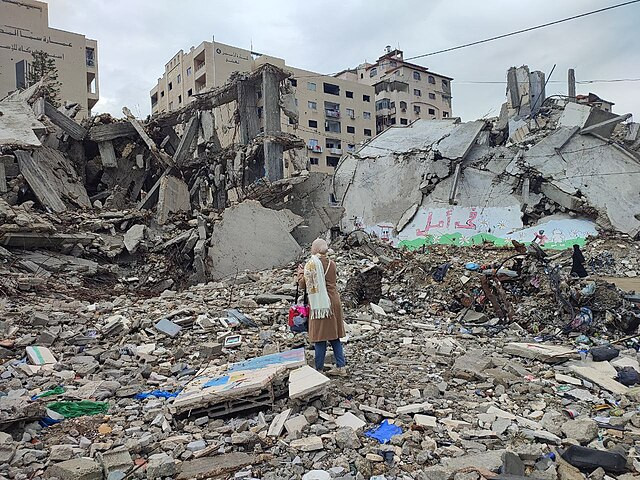Israel launched an expanded ground offensive into Gaza City on Tuesday, warning remaining residents to evacuate south as air, land and sea strikes intensified across the enclave's largest urban center. Defense Minister Israel Katz declared, "Gaza is burning," as Israel Defense Forces (IDF) units pushed from the outskirts toward the city's center and officials said the "main phase" of the operation had begun. Israeli media signaled the campaign could last for months even as cease-fire diplomacy has stalled.
The escalation rippled through regional and international capitals. A United Nations Human Rights Council-commissioned panel of independent experts announced that Israel is committing genocide in Gaza, a charge Israel denounced as "distorted and false." In Brussels, European Union officials prepared additional measures against Israel, while in Jerusalem and Tel Aviv the government pressed ahead, with Katz writing on X: "The IDF strikes with an iron fist at the terrorist infrastructure and IDF soldiers are fighting bravely to create the conditions for the release of the hostages and the defeat of Hamas."
U.S. Secretary of State Marco Rubio, traveling in the region, left Israel for Doha to consult Qatar's leadership and underline the narrow window for a negotiated release of hostages. "We have a very short window of time in which a deal can happen," Rubio said, calling a diplomatic agreement "a key moment - an important moment." Warning of a prolonged fight, he added: "The only thing worse than a war is a protracted one that goes on forever and ever... At some point, Hamas has to be defanged... we hope it can happen through a negotiation. But I think time, unfortunately, is running out."
Inside Gaza City, Palestinian residents described some of the heaviest bombardment of the war. By midday, Shifa Hospital had received 34 bodies from strikes, according to Dr. Rami Mhanna, with "dozens" more wounded. "A very tough night in Gaza," said Dr. Mohamed Abu Selmiyah. "The bombing did not stop for a single moment."
The IDF said it believes 2,000 to 3,000 Hamas fighters remain in Gaza City and reiterated accusations that the group embeds military infrastructure in civilian areas. Israel estimated about 350,000 people have left Gaza City since evacuation warnings, while a U.N. update the previous day put departures from northern Gaza at more than 220,000 over the past month. Long vehicle lines formed along the coastal road as families fled with mattresses and bags strapped to cars, while others departed on foot.
Families of hostages protested overnight outside Prime Minister Benjamin Netanyahu's residence in Jerusalem, urging a halt to the Gaza City push until a deal is reached. "I have one interest - for this country to wake up and bring back my child along with 47 other hostages, both living and deceased, and to bring our soldiers home," said Einav Zangauker, whose son Matan is held in Gaza. Criticizing the continued assault, she said of Netanyahu: "If he stops at nothing and sends our precious, brave, heroic soldiers to fight while our hostages are being used as human shields - he is not a worthy prime minister."
Egypt, a cornerstone of Arab-Israeli diplomacy since its 1979 treaty, sharpened its rhetoric. President Abdel-Fattah el-Sissi referred to Israel as "an enemy" - a first in decades, according to Diaa Rashwan of the State Information Service - with Rashwan saying, "Egypt is being threatened." Cairo and Doha remain key interlocutors in shuttle talks.
The war, triggered by the Oct. 7, 2023 Hamas-led assault that killed around 1,200 people in Israel and abducted 251, has since left at least 64,871 Palestinians dead in Gaza, according to Gaza's Health Ministry, which says women and children constitute about half of the fatalities. Israel believes about 20 of the 48 hostages still in Gaza are alive; Hamas has said remaining captives would be exchanged only for prisoners, a lasting cease-fire and an Israeli withdrawal.






